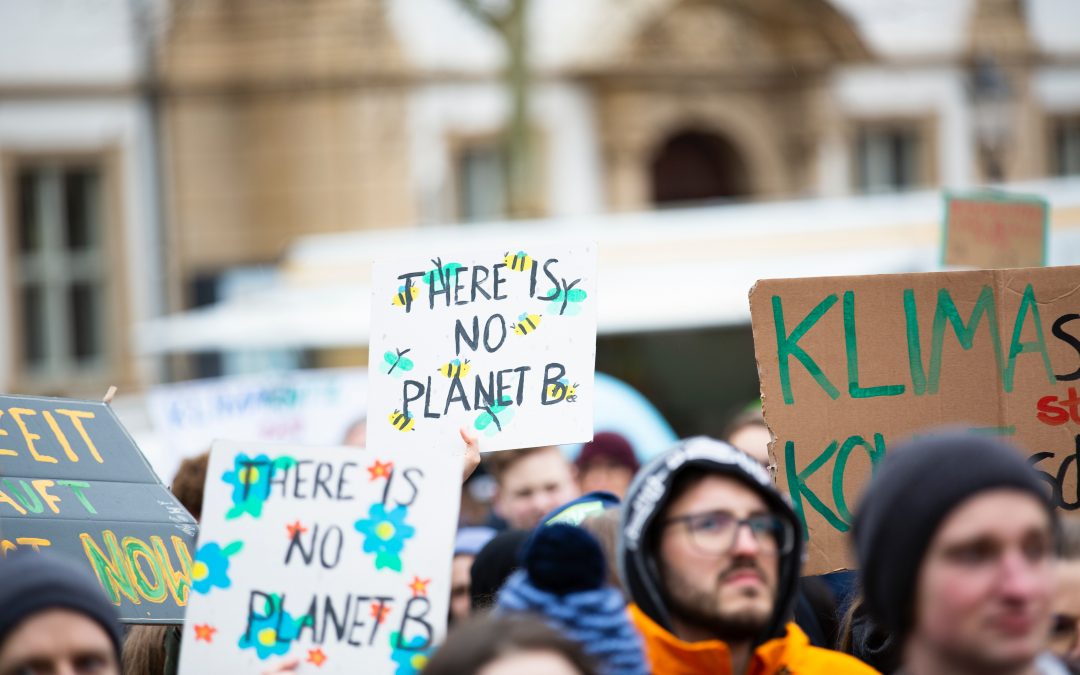Martin Kowarsch's take on the difficulties of global scientific assessments.
In September you are organizing the conference “Divergent values in sustainability assessments: love them, leave them, or change them?”. A core theme of the conference is “ethics in scientific policy advice”. Why do you think the topic of ethics in scientific policy advice is important now?

Martin Kowarsch, expert on Scientific Assessments, Ethics and Public Policy
Scientific expertise is important for informing politics about sustainable development, climate change, environmental problems and solutions. These are challenges that many countries in the world face which makes it necessary to address them on a global scale. Obviously, a lot of value judgements are involved based on different cultural viewpoints. You need to reconcile very different perspectives at this level, take into account divergent normative considerations, which are inherently and inevitably involved in research around sustainability and climate change. Bringing together scientific expertise and different values in order to inform politics in a legitimate manner is a huge challenge. We hope to come up with new ideas, new approaches, new expiration for how to respond to these divergent values.
As you mentioned, political and ethical values are not the same in every country, but problems as climate change are. How is it possible to reconcile different viewpoints, values and offer a global solution to global problems?
I’d like to mentions three aspects in this respect. First, it is impossible to neatly separate science from a value dimension and this is a particular standpoint in the philosophy of science, which is meanwhile widely shared. So, there is no such thing as value free science and at the very least you have epistemic value judgements involved. Furthermore, many concepts in the social sciences, for example, as efficiency in economic terms, development or growth have normative connotations. These are not purely descriptive and certainly have a normative dimension; there are a lot of assumptions in economic, sociological or political models. These assumptions influence the way we describe the world.
Second, there are interesting practical experiments when very diverse stakeholder groups are brought together as in the IPBES-process (Intergovernmental Science-Policy Platform on Biodiversity and Ecosystem Services). They focus particularly on the diversity of values and normative viewpoints and currently work on an assessment on such divergent values. This is a truly exciting case and experiment after all. They try to explicitly acknowledge and show diverse perspectives, for example, concerning the value of nature in different cultures, religions and economic schools of thought.
Third, just because facts are interpreted differently according to diverse values, it does not mean that they cannot ever be reconciled or that it’s impossible to come to objective knowledge. This part is very hard to understand not only for politicians or lay people, but also for most researchers. So again: knowledge can still be objective despite the fact that it’s accompanied by ethical and normative values.
Here, I’d like to draw attention to the researcher Schwartz who did dozens of studies worldwide in different places around the world and compared different value sets. What they found is yes, there is diversity, but it’s still limited to only a couple of categories that pop-up again and again. There always the same tensions between universalism versus protection of one’s own peer group, between favouring adventure or stability and conservation. There are poles of different dimensions, but universal categories that appear to be relevant to very different cultures. This means at least that there are not a million of different value categories that need to be reconciled, but much less. There are even some things we might share, some basic needs, ideas about flourishing lives.
These ideas might not necessarily be identical, but still there are some overlaps. Finding these overlaps could be a promising approach in order to address the challenge of globally diverse values by showing that people can learn from each other in terms of widening and expanding the set of values that they accept as reasonable values. For example, we can expect that people who emphasize tradition and conservative values might over time learn that other sets of values also matter. To make it a bit more tangible: in US politics we have the two big camps of Republican and Democratic voters – the liberal and conservative camps fighting about scientific credibility around climate change. Cultural aspects and the historical context play into this debate. In fact, the discussion is not about science any more, but about values, and how people interpret facts and knowledge. Obviously, conservative values are very different from liberal ones. Typically, when justifying ambitious global climate change goals, people usually refer to liberal values, such as global equality or protection from harm. Usually, one forgets to emphasize on other values, such as “purity and sanctity” which are important from a conservative viewpoint and which relate to environmental protection, for instance in terms of health issues in the context of air pollution. So, there are opportunities to reframe the debate around environmental policies in light of these values and to broaden the scope of values that we take into account.
How should the process of reconciling divergent viewpoints be designed?
I described this process in a number of publications: the way is to co-produce alternative pathways and this requires collaboration between researchers from social sciences, the humanities and natural sciences – so in a very interdisciplinary manner – and different stakeholders from the society such as policy makers and the citizenry. These groups need to collaborate in order to develop a better understanding of future and viable policy alternatives that somehow represent these divergent values and perspective. It’s important to go away from abstract ideological debates and start learning about the practical implications of alternative pathways that represent different viewpoint. This is the only way to facilitate learning, even if people don’t change much on the level of fundamental values, they are more likely to acknowledge that there is a variety of values and this, in turn, will facilitate the identification of practical overlaps in terms of concrete political pathways. It might turn out that ideological conflicts don’t really matter on the level of concrete policy measures, because you might justify a particular policy not only in terms of liberal values, but maybe also in terms of republican values.
What makes scientific policy consulting “scientific” and distinguishes it from other forms of consultancy?
A lot of pressure is being put on institutions like the IPCC from the scientific community and policy makers demanding which are demanding to come up with credible evidence, credible claims about climate change. When speaking about quality, it’s mostly still being referred to peer review as the core criteria to ensure quality.
What they did was that they focused a lot on peer reviewed since, on the peer-review process as the core criteria of the quality of science and also bringing together the best experts available from different countries sitting together for years, in the case of the IPCC it’s 6, or 7 years they collaborate with each other, so these two things focus on peer reviewed literature, also on the credibility of individual experts, that also with checks and balances control each other, so a very strict process of a peer reviewed process within the IPCC from the academic community and the policy community.
But there is a crucial problem to this. Several studies are not available as peer-reviewed publications. For example, if we speak about up to date from energy systems or economic data. A lot of important information is published as grey literature and the IPCC is allowed to take this into account, but they have to qualify the level of credibility of these non peer-reviewed studies. This literature is necessary, but of course it’s a trade-off and lead to huge problems in the past. In 2010 the IPCC was heavily criticised, because of some, in my opinion, minor mistakes based on grey literature. Afterwards, the IPCC made it’s guidelines more strict and focused even more on peer-reviewed literature.
To overcome this disparity between relevance and “grey-availability” it’s possible to publish these in a peer-reviewed manner, so basically provide peer review for grey literature. It’s difficult to do so because of lacking technical and human resources on a global scale.
What has to be done in order to address this disparity of resources around the globe?
There should be more capacity building and Western countries should definitely put more emphasis on it. In terms of human resources you often hear criticism as “look at your authors list, it’s not balanced, because 70% of your authors are coming from Western countries”. The IPCC, for example, is trying really hard to be diverse, but it’s difficult to realize since you may have hundreds of different experts in Germany, the US, UK, but you might have only two or three experts in some African countries and those are usually highly over-committed. They are not only working on climate change, they also work on water management, biodiversity, chemical pollution and so on, because they are experts for everything because they are rare. Often they don’t have enough time to be really engaged in the process, so it’s again dominated by others from Western countries.
An additional problem is the technical infrastructure. When speaking about global scientific assessments, you have a lot of online virtual meeting, but in some parts of the world you don’t have a stable internet connection and these are technical obstacles that hinder from engaging in the same way as their colleagues from Europe and the US. In addition, there’s the problem of access to research literature.
Would an infrastructure for “grey literature” where these sources would be openly reviewed by peers around the world be helpful in terms of securing quality of scientific policy advice?
This definitely sounds helpful, the question is whether we should focus so much on the separation of research literature and “grey literature”. Maybe we should rather envisage a revolution in the way we ensure scientific quality in the academic community and focus much more on online platforms where there is an ongoing, transparent, open and international review process. Why not thinking about a process where you are publishing an article and overtime it gets more and more reviews, if it doesn’t get reviews it might be deemed as irrelevant. This way, you already have a measure, a proxy for relevance and review might be added over time, so you have 20 or 200 reviews throughout time and new aspects added later; one year later you might find some new data or discover that some assumptions are flawed which you didn’t know before.
Another thing that is extremely important in the communication at the science-policy interface are meta-studies and meta-assessments like systematic reviews of the available knowledge corpus. In climate change there are around 300 to 500 thousand publications depending on different estimates, and thus the body of knowledge is exploding. There is no single researcher that read at least one percent of these publications, so how is it even possible to ensure the assessment of the existing knowledge if you have such a huge number of publications. For example, if you are trying to answer the question: “Is carbon pricing a good idea or not?”, you cannot deal with it on a theoretical level only, you also need case studies, policy learning and practical examples from different countries. There are studies and tools available to do this, but hardly anybody is really aggregating them so far. When preparing an assessment, experts just select a few studies by picking sources based on one’s own information and feeling. So the question of quality assurance is not only relevant on the level of primary scientific publication or knowledge production, but also on a meta-level, on aggregation and synthesis of knowledge.

